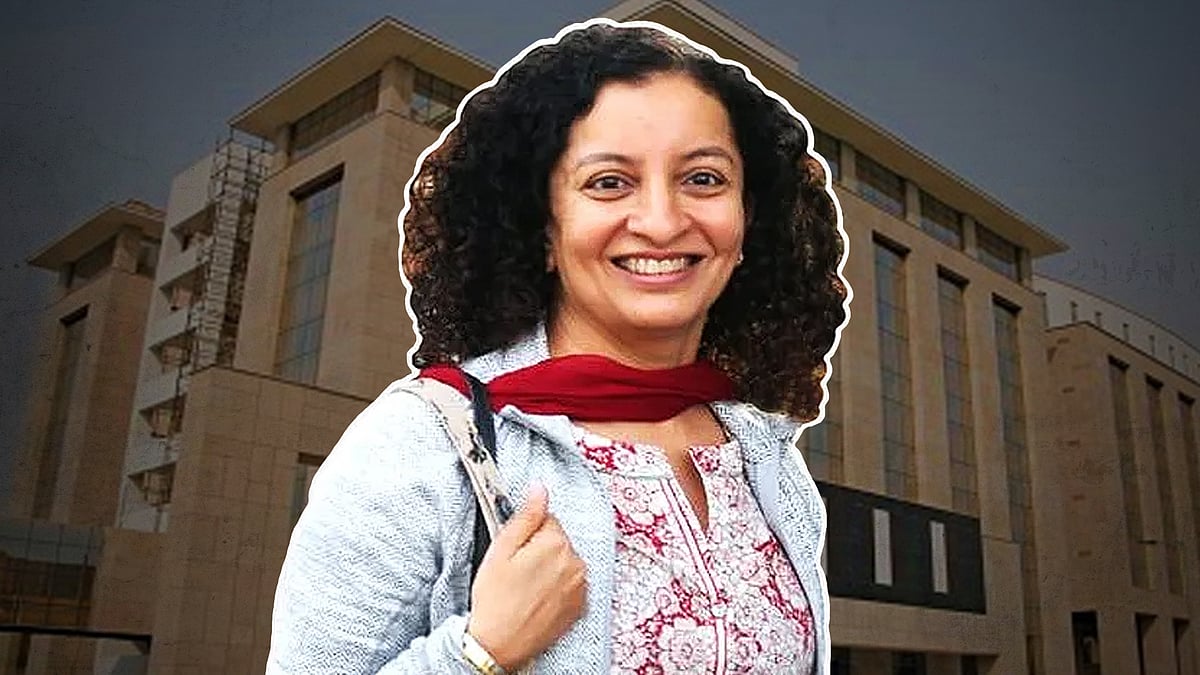Calling someone media’s greatest predator is per se defamatory: MJ Akbar’s counsel concludes arguments in Priya Ramani case
Ramani’s counsel will start her final arguments on March 17.
The final arguments in Bharatiya Janata Party leader MJ Akbar’s defamation suit against journalist Priya Ramani continued on Friday and concluded on Saturday. The arguments were delivered by Akbar’s counsel, Geeta Luthra, in the Rouse Avenue Court in front of Additional Metropolitan Magistrate Vishal Pahuja.
Akbar filed the criminal defamation case against Ramani in October 2018, after Ramani accused him of sexual harassment. Neither Akbar nor Ramani were present in court on Friday or Saturday.
Saturday’s hearing began at 2.12 pm. Luthra cited high court and Supreme Court judgements in an effort to prove the standing of Akbar’s reputation in society.
She began by citing the 2013 Delhi High Court judgement of Yash Mehra vs Arundhati Sapru on three essential ingredients of criminal defamation: making or publishing an imputation against any person; intention to harm or a reason to believe it will harm the reputation; tested in the fields of what a reasonable, fair-minded, right-thinking man would feel.
In the context of the third point, Luthra said the question must be tested from “the angle of [what] a reasonable man would feel”. Very clearly, intention or knowledge or reason to believe is to be seen,” she told the court. “Even if we put the strictest test of mens rea, it is satisfied in this case.”
Luthra said journalists, academicians, and people related to these professions are “educated, literate and informed”. Therefore, there is a greater onus for them to act responsibly. “Especially in this day and age, where news travels on social media like wildfire,” she added.
After citing Harbhajan Singh vs State of Punjab in the context of who a “reasonable person” is, Luthra moved on to the Vogue article Ramani had written. Ramani wrote the article in 2017. It included allegations of sexual harassment by a famous editor. In 2018, during the #MeToo wave in India, Ramani had identified the editor as MJ Akbar.
Luthra said, “After writing a whole article, saying that it was about Mr Akbar, it was for the first time in this court that they say that the entire article was not about him. Where does it say that?”
“This is not done!” Luthra exclaimed. She added, “For some people, their reputation is more important than their life itself.”
Luthra continued, “Don’t you have a sense of responsibility? There was no corrigendum, [no] sense of responsibility…and you did it with knowledge.”
Luthra said that Akbar had emphasised that his “public reputation was maligned” and that “embarrassing questions” were asked to him. Referring to the Pepsu judgement, she said, “One need not prove that the statement was made with ill-will ... every person is deemed to have the knowledge of the consequences that would follow his or her statement.”
Luthra said in this case, it’s “a journalist who can be presumed to have a better understanding of the consequences of her statement, as she is presumed to be knowledgeable. Even in our country, according to the law, an illiterate person who doesn’t have any knowledge is supposed to have an idea of the consequence of their statement. In this case, it was a journalist.”
Luthra went on to cite several other judgements to prop up her argument. She then said, “...60-70 years of one’s life, you can’t just wash it away by saying something irresponsible.”
She listed the four tweets in which Ramani revealed Akbar’s name with respect to her Vogue article which, she said, were “offensive”. “According to one, she says he didn’t do anything,” Luthra told the court. “In the next, she starts a blame game, and then the person remains defenceless. After which she calls it a ‘victory’. And after all this, she intended it generally and not against him.”
The matter was then adjourned. Ramani’s counsel, Rebecca John, wil start her final arguments on March 17.
The hearing on Friday
Yesterday’s hearing lasted about 20-25 minutes in front of Additional Metropolitan Magistrate Vishal Pahuja. Luthra had been making her final arguments.
She said: “I have satisfied the mandate that his reputation was lowered. We have showed that people had great respect for him and her words harmed [his] reputation per se.”
She said, “The moment you call someone media’s greatest predator, it is defamatory per se.”
Luthra told the court that “two people..reasonable men say that my reputation has been lowered, it is good enough...Even if the intention is not to defame.”
She continued: “Reputation affects not only that person but also others...You are sowing a suspicion [for those] who are associated with him. You are doing it to his family, his children, and those who interact with him socially and publicly. It has a cascading effect.”
 MJ Akbar vs Priya Ramani: ‘We can’t be a social media country’
MJ Akbar vs Priya Ramani: ‘We can’t be a social media country’ Priya Ramani vs MJ Akbar: Courtroom drama over The Wire report overshadows Ghazala Wahab’s testimony
Priya Ramani vs MJ Akbar: Courtroom drama over The Wire report overshadows Ghazala Wahab’s testimony